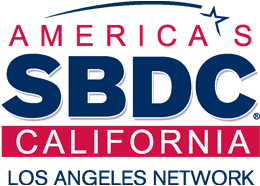March 5, 2012
Are you confident that your business is paying all its state and federal taxes on time and in full? Or are you worried that something could be falling through the cracks? Failing to understand all the taxes your business is responsible for can lead to tax liens, bank levies, wage garnishments and, ultimately, business failure, warns SBDC Business Advisor Nicholas Galuzevski.
Are certain types of businesses at greater risk of failing to understand their tax exposure?
Small businesses are at greater risk simply because they have fewer resources to focus on tax issues, Galuzevski says. But more than business size, the diversity of your work force increases your risk regarding employment taxes (federal and state income taxes and unemployment insurance). “The simplest employment tax scenario is where everyone gets paid the same amount at the same time interval and on the same basis—hourly or salaried,” Galuzevski explains. Things get more complicated when you have a combination of hourly and salaried employees, or employees in different classes, paid at different rates and on different time schedules. To minimize risk, Galuzevski recommends using an outside payroll processing service to not only produce payroll checks, but also process and pay your federal and state payroll-related taxes. While a sole proprietorship generally has the lowest tax exposure, Galuzevski says, you should talk to a qualified tax attorney to determine what form of business is best for your situation.
 What is the most important federal tax exposure to understand?
What is the most important federal tax exposure to understand?
Whether your workers are classified as independent contractors or employees has a significant impact on employment taxes. Generally, Galuzevski says, it’s less expensive to the employer if a worker is classified as an independent contractor. However, if the IRS finds that you have misclassified employees as independent contractors, you could face fines and penalties. The IRS uses a 20-factor test to determine whether an employer-employee relationship exists, but “there’s a lot of wiggle room involved,” warns Galuzevski.If you’re unsure how to classify workers, talk to an experienced tax attorney.
What are some common mistakes business owners make in regard to income tax?
Filing your tax return after the due date is the most common mistake, Galuzevski says. If you file late, you can incur a late penalty in addition to the penalty and interest charged for failing to pay your taxes. “Do your best to submit a complete and accurate return by the due date,” Galuzevski advises, “regardless of whether or not full payment can be made with the return.”
What are some of the most common mistakes business owners make in regard to estimated tax?
Estimated tax is used to pay both income tax and self-employment tax, as well as other taxes and amounts reported on your tax return, Galuzevski says. “If you don’t pay enough by the due date of each payment period, you may be charged a penalty, even if you are due a refund when you file your tax return.”
If you miss an important tax deadline, underpay or make an error in your taxes, what is the best way to handle it?
If you haven’t already done so, Galuzevski advises engaging a qualified tax professional and thoroughly explaining your situation to develop a strategy for overcoming the problem. Alternately, contact the I.R.S. or Franchise Tax Board (depending on whether the problem relates to federal taxes or state taxes). “Don’t let fear get in the way of resolving the problem,” Galuzevski urges. “Be forthright in explaining your situation, and [the agency] will help you develop a plan to get the problem resolved.”
What are the best ways for small business owners to stay on top of tax deadlines?
“Establish a relationship with a CPA firm or qualified tax professional that has the resources in place to remind you of various tax deadlines,” says Galuzevski. Then implement a tax planning routine. “Get a head start by doing income and expense projections so that you can budget for your inevitable income tax liability,” he suggests. Use software such as Microsoft Project to create a schedule so you can see upcoming payments and due dates at a glance. Says Galuzevski, “The best way to avoid a problem is to be proactive.”
Rieva Lesonsky is founder and President of GrowBiz Media, a media company that helps entrepreneurs start and grow their businesses. Before launching her business, she was Editorial Director of Entrepreneur Magazine. Follow Rieva at Twitter.com/Rieva, read her blog at SmallBizDaily.com, and visit her website SmallBizTrendCast to get the scoop on business trends and sign up for free TrendCast reports.





